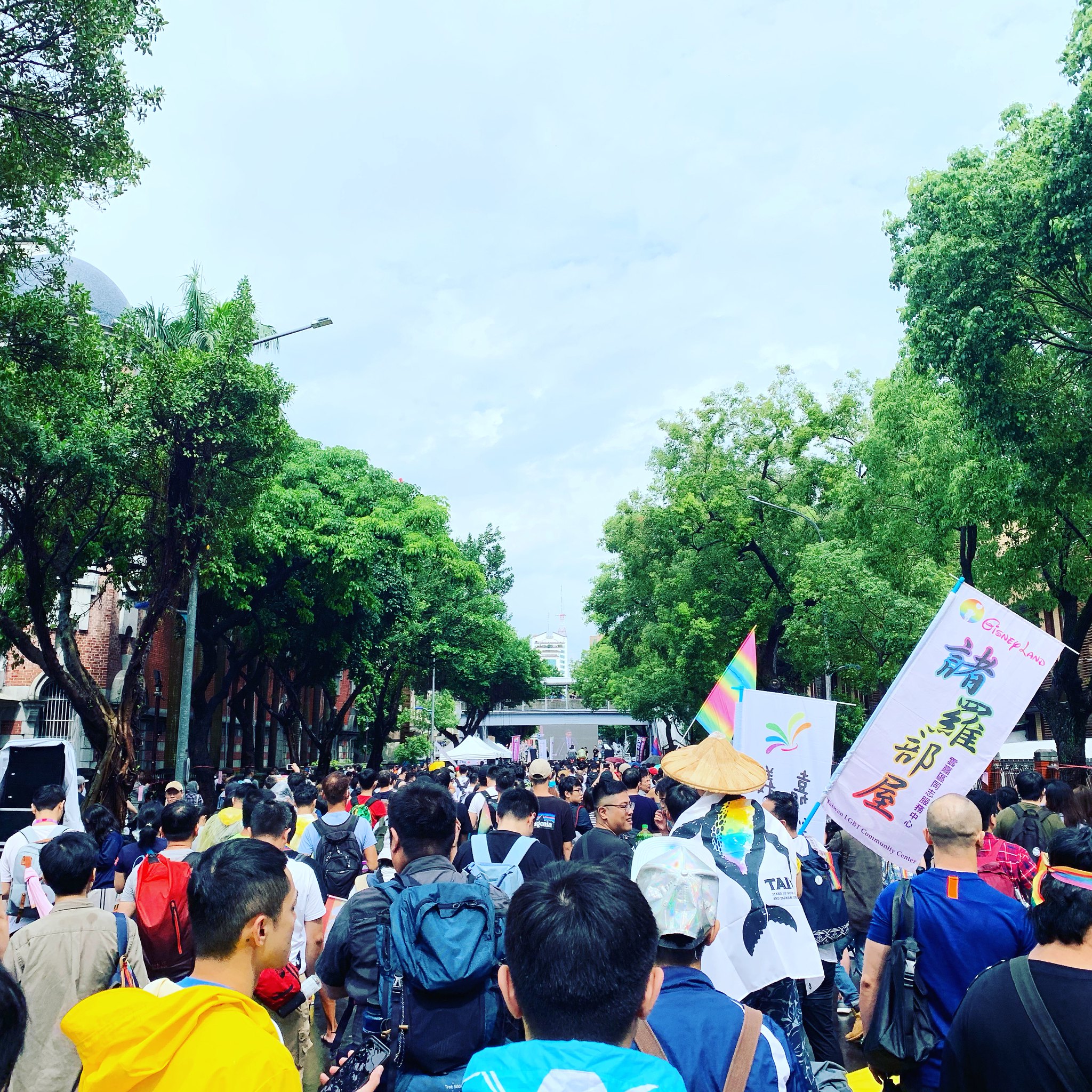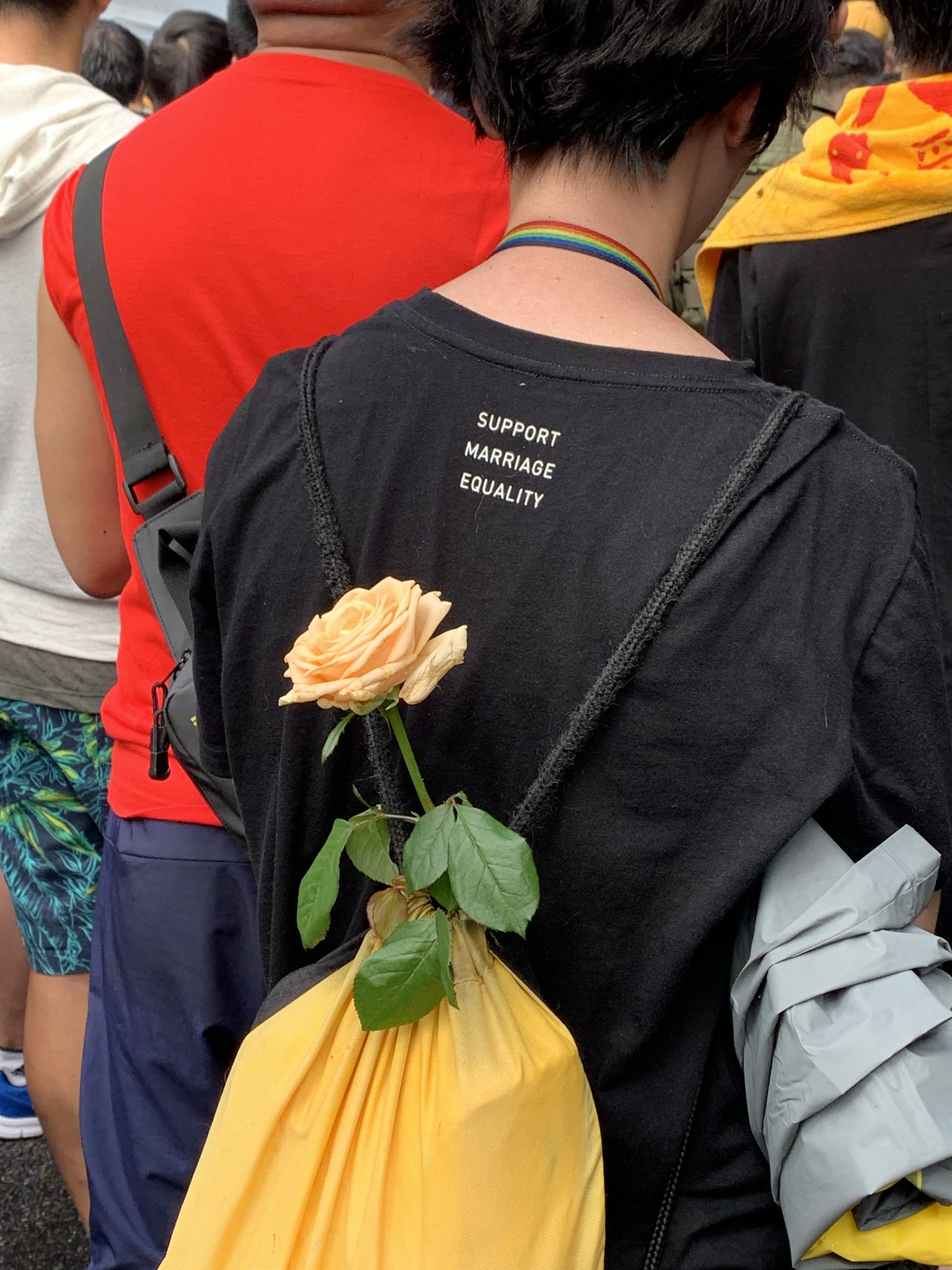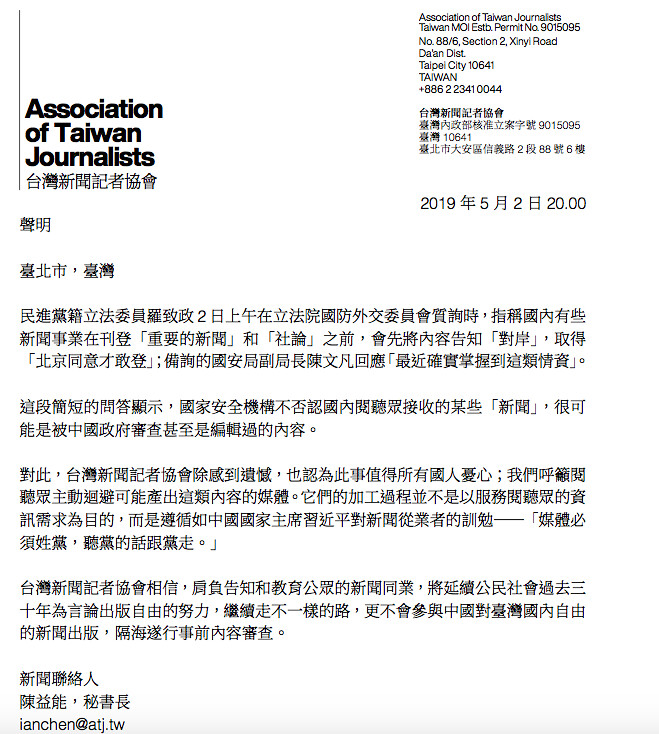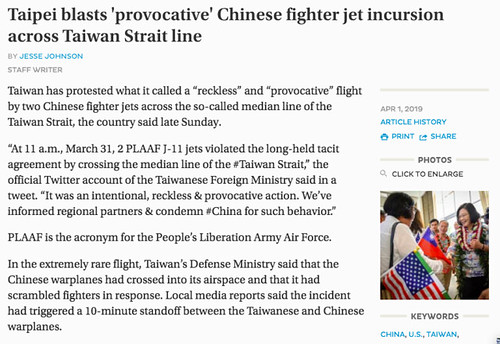Pro-equality activists have been talking about the tangential benefits of same-sex marriage (or better yet, marriage equality) in Taiwan for years, most notably that it would be a massive boost to Taiwan's international visibility. Just imagine the international media coverage, all focused on Taiwan, especially if we're the first in Asia, we've been saying since...forever.
Last Friday it happened. We laughed, we (happy) cried, it was the feel-good legislation of the year. And just like we said, the rainbow explosion wasn't limited to Taiwan. Every major media outlet around the world - not just the ones in Western nations - carried the news.
Let's put that into perspective. After 2014, when I mentioned "the Sunflowers" to my friends in the US, I was met with blank stares. I may as well have been talking about actual sunflowers that you can grow in a garden. This time, I don't think I have a friend or relative in the world who hasn't heard the news. Taiwan did something huge, and it mattered to the news cycle that it was the first country in Asia to strike a blow for equality.
Wait, what was that I just said? First country?
Reading most English-language media, unfortunately, that word has been avoided with the most, um, ductile of language choices (please enjoy some links to examples). First place in Asia. The island's parliament. Taiwan's parliament...in historic first for Asia. First in Asia.
First what in Asia? It seems nobody is willing to clarify. Or if they are, it's a 'state' (how is that different from a country?) or a 'self-ruled island'.
Of course, a few incompetent dipclowns (like the World Economic Forum) kind of soured it by calling this country "Taiwan, China", The Guardian called Taiwan a country on Instagram then issued a correction that it was a 'state', and now seems to have taken the post down (I can't find it to link it), and of course the Chinese media gonna Chinese media and whatever.
I propose, however, that the good reporting on this issue (and reporting that is good for Taiwan) has far outstripped the few geographically-challenged dumbos.
First, plenty of media did call Taiwan a country. USA Today called Taiwan a "country" via the Associated Press. The Chicago Tribune used it in their headline too, as did Quartz. The New York Times didn't use that word in their title, but they managed to find a quote to help them slip it in, and CNN did too. Bloomberg managed to stick it into three separate quotes the day before the vote (good job!), and a Bloomberg-affiliated video on Youtube uses the word "country" and so did DW. ANI (from South Asia) called Taiwan a "nation", Bustle called it a "country". Here is The Economist using it in their first paragraph and The Washington Post using "nation" towards the top of the article. There are surely more - there are only so many articles on the same topic that I can read.

That's a lot of major media calling Taiwan a 'country' or a 'nation' and a lot of readers who will now understand that Taiwan is indeed a country. Nothing at all to sniff at.
Look beyond the English-language media, and it gets even better. On Twitter, Pierre Baubry noted that most French media called Taiwan a country:
Most French media yesterday used "country" to describe Taiwan.— Pierre-Yves Baubry (@pybaubry) May 18, 2019
Bilan de la journée d'hier dans les médias français : Taiwan a fait la une, et le mot "pays" s'est imposé largement pour le décrire, d'Ouest France à France Culture, de BFM TV à Euronews, de Têtu à RFI... 😊
...and that lines up with my admittedly shallow research (the sub-headline in Le Monde called Taiwan a 'country'). It's the same in Spanish. No, really. There seem to be very few outliers, and even this one references the word "country" within the first paragraph.
But you know what? That's not even the best part.
The best part is that almost every single one of these stories, whether they called Taiwan a 'country', 'nation', 'place', 'state', 'island' or nothing at all ('first in Asia!'), focused on Taiwan itself.
Not its relationship to China. Not what China thinks about Taiwan. Not China's reaction. Taiwan. The deliberations of Taiwan's legislature. What Taiwanese voters and demonstrators think. What President Tsai did. Taiwan's domestic political situation. China was a non-entity, as it should be, seeing as it's a totally different country. I mean, our buddy Ralph "I hate Taiwan but still write about it" Jennings framed his piece in relation to China but...well. Who cares - at least this time - if one guy buried the lede?
What I mean is, for once, the international media mostly reported on Taiwan the way they should have been all along.
When China was mentioned, it was either in passing without any of that 1949 claptrap, or it was to compare Taiwan favorably to China. Yay!
From the Washington Post:
In neighboring China — which asserts sovereignty over Taiwan — popular LGBT microblogs were censored online in the wake of Taiwan’s 2017 high-court ruling. The social media platform Weibo was criticized last month for restricting LGBT hashtags.
Taiwan has shown that “traditional culture is not against LGBT culture,” said Jennifer Lu, coordinator of the rights group Marriage Equality Coalition Taiwan. “That’s the message we want to send to the world.”
Another great thing? All of the amazing soundbites from Taiwan being reported around the world, which focus specifically on the progressive conversation happening here. From the Washington Post:
Tsai, the president, voiced her support of the legislation in a Twitter post, saying that Friday marked “a chance to make history and show the world that progressive values can take root in an Asian society.”
And another one from WaPo correctly pointing out that this has long been an issue in Taiwan, correctly delineating Taiwanese activist history as continuous and robust:
Chi Chia-wei, a gay rights activist for more than 30 years, said he was “very, very happy” to see Taiwan legalize same-sex marriage, calling the process “a strong demonstration of our democratic spirit.”
From the New York Times:
“Taiwan has become the first country in Asia to legalize same-sex marriage,” it said, “successfully striding toward a new page of history!”
Human rights activists said they hoped Taiwan’s vote could influence other places in Asia to approve same-sex marriage.
From The Guardian:
“What we have achieved is not easy,” said Victoria Hsu, the founder and executive director of the Taiwan Alliance to Promote Civil Partnership Rights. “The law will not be 100% perfect, but this is a good start and this is a major step to end discrimination based on sexual orientation. Now the law says everyone should be treated equally no matter who you are, who you love.”
In another Washington Post piece, properly situating Taiwan as a progressive leader in Asia:
The vote in Taiwan helps “signal it’s not an East-West thing or global North global South thing,” Knight said. Officials in Brunei will have a hard time defending such harsh anti-homosexuality legislation, he said, “when the map of the Asian region is moving clearly in the opposite direction."
From The Economist:
In Asia, Taiwan has long stood out as a bastion of gay rights. The annual gay pride parade in Taipei, the capital, draws tens of thousands, many from overseas.
You guys, this is the kind of reporting that gets the world to wake up and notice Taiwan. This is how we show everyone not only that human rights are not an east-west issue (or a Global South/Global North one, though I would not say Taiwan is in the Global South developmentally), but that Taiwan is a bastion and a leader in Asia. This is how we show them how vibrant Taiwan's democracy really is, and that in fact a lot of interesting things take place here that they probably had no idea about, because the media never bothered to report on it.
For that, I'm willing to overlook a few weaklings who wouldn't dare to just write "country" (and a few purposeful jerks like the World Economic Forum).
Overall, this is a win for Taiwan. Taiwan the country, Taiwan the regional leader, Taiwan the bastion of progressivism (at least by Asian standards).
Now, how do we get all those journalists to keep it up?






